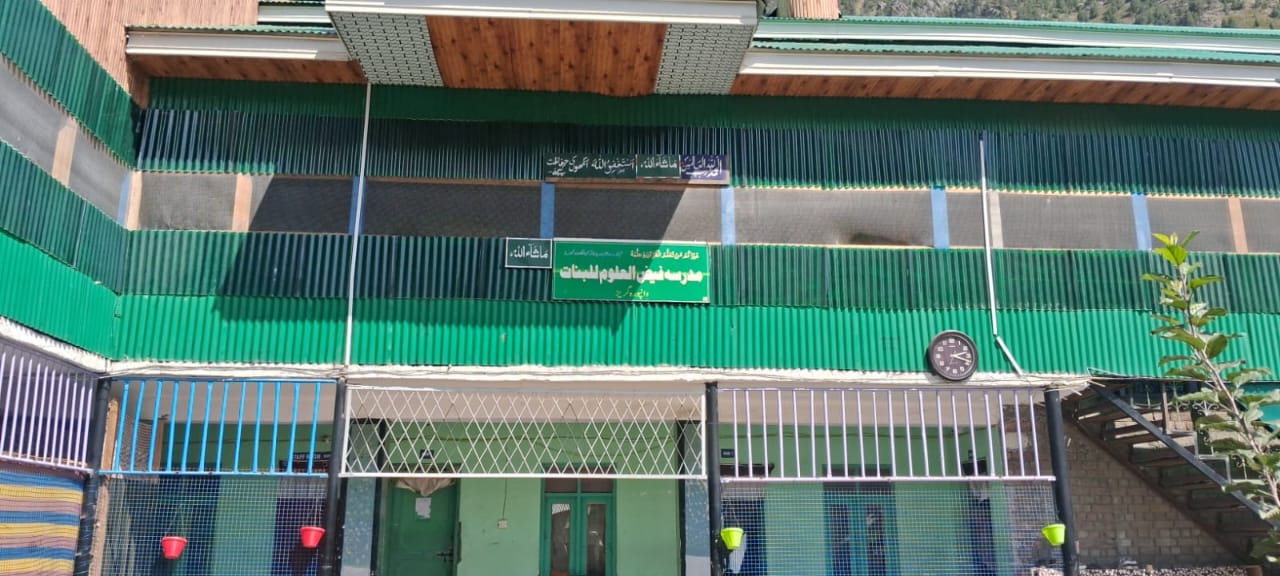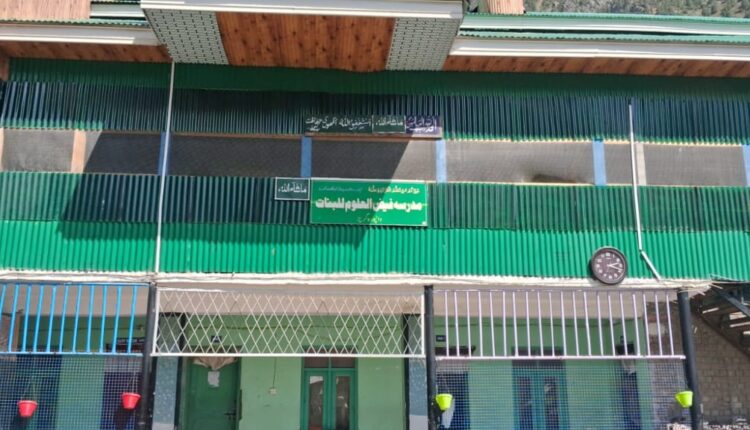“He who treads a path in search of knowledge, Allah makes easy for him a path to Paradise.”
Prophet Muhammad (PBUH), Sunan Abu Dawood
“Iqbal never loses hope in his barren land, because even a single drop of dew can make the soil fertile.”
In the far-off valleys of Gurez and Tulail, where chances may look limited, the seeds of knowledge carry great promise. With patience, care, and the right guidance, the students of these institutes can turn their land into a garden of learning and progress. This shows that with hope and effort, even the driest soil can bloom.
It is an undeniable reality that the land of Gurez as well as Tulail has advanced not only in modern education but also in the field of Islamic learning. Alongside modern educationalists & Islamic educationalists are also seen in large numbers in the caravan of the erudite. Religious scholars have emerged from this valley, illuminating not only Gurez but many other parts of the Kashmir Valley with the light of Islamic awareness. A wide range of madrasas and maktabs are spread across this region to strengthen the bond with society and impart the knowledge of the Qur’an and Hadith. Among them, the oldest is Makhzan-ul-Uloom, located in the heart of Gurez Valley in Dawar village. It was founded by Hazrat Maulana Ghulam Ahmad Mir Sb, who lit the sacred lamp of knowledge through this institution. From here, a number of Huffaz (those who memorized the Qur’an) early on and dedicated themselves to teaching the Qur’an in this region as well as in different parts of Kashmir valley.

Another milestone in religious education is the Islamic institute Sabeel-ur-Rashaad in Sheikh Pora Tulail, while in Kanzalwan, Madrasa Farooq-e-Aazam continues to guide students—especially girls — towards the right path. This institution, led by Hafiz Sajid Sb, currently offers Hifz for boys and three primary Arabic classes exclusively for girls. Students from nearby regions are showing great interest in learning the Qur’an and Hadith here. Presently, three Aalimah (female tutors) and three Aalim (male tutors) are engaged in teaching, ensuring students receive Islamic knowledge in the best possible way.
Another beacon of knowledge in Gurez Valley is Madrasa Faiz-ul-Uloom Lil Banaat, whose foundation stone was laid by Maulana Syedullah Sheikh Sb in 2014 at Wanpora Gurez. Later, the institution was shifted to Nai Basti Badwan, where it continues to function under the supervision of Maulana Syedullah Sheikh Sb.
This madrasa stands as a symbol of dedication to women’s education and spiritual growth, contributing significantly to the intellectual and moral development of the region. Dedicated to promoting Islamic education for girls, this institute initially began as a simple maktab. Over time, it developed into a revolutionary educational institution shaping the future of society.
Currently, its principal, Hazrat Maulana Tahir Hussain Sb (May Allah bless him), has worked tirelessly to establish it as a beacon of Islamic knowledge. Maulana Sb remains engaged in teaching the Hadith book Mishkaat-ul-Masabeeh along with his other responsibilities. With the blessings of Almighty Allah, this institution has grown remarkably, producing not only Huffaz but also qualified Aalimahs.
The curriculum here now includes extensive Arabic studies such as Arabic Literature (Adab), Sarf, Nahw, Fiqh, along with Hadith texts. Last year, Mishkaat Shareef was added to the syllabus, and this year, selected chapters of Sahih al-Bukhari were also introduced. For the first time, the land of Gurez has been blessed with the honor of commencing the teaching of Sahih al-Bukhari—the most esteemed book after the Book of Allah. Furthermore, as part of its academic journey, the Sihah E Sittah collection has been added, enriching the scholarly exposure of students.
Among the dedicated teachers is Mufti Hafizullah Qasmi Sb, a man of humble background and simple nature, who works diligently for his students. His teaching methods aim to make learning easy and concepts clear, ensuring that knowledge is passed on effectively and with sincerity.
The solemn ceremony commenced with distinguished introductory remarks delivered by Hazrat Maulana Tahir Hussain Sheikh Sahib, which marked a graceful beginning to the event. This was followed by a soulful recitation of the Holy Qur’an and a melodious Naat-e-Nabi (ﷺ). In continuation, selected verses from Sahih al-Bukhari were recited by students, after which Hazrat Maulana Irshad Qasmi Sahib presented the opening Hadith of Sahih al-Bukhari: “Verily, actions are judged by intentions.” In his address, he advised the students to dedicate their pursuit of knowledge solely for the sake of attaining divine pleasure. Subsequently, Hazrat Mufti Bilal Qasmi Sahib expounded upon the concluding Hadith of Sahih al-Bukhari: “Two words beloved to the Most Merciful, light on the tongue yet heavy on the scales.” His reflections left a deep spiritual impact on the audience. Thereafter, students presented the traditional Tarana-e-Khatm-e-Bukhari, which added further grace to the gathering. Among the notable personalities present on the occasion were Hafiz Mushtaq Sb, Hafiz Sharafat Sb, Hafiz Ayoub Sb, Hafiz Maqbool Sb, Mufti Lateef Sb, Hafiz Riyaz Sb, Hafiz Abbas Sb, and Hafiz Mustafa Sb. The blessed ceremony concluded with a heartfelt Dua, led by Hazrat Qari Maqbool Sb, invoking divine mercy and blessings upon all.
May Allah Almighty accept the efforts of all these institutions and scholars, grant strength and permanence to their endeavors, and make this valley a perpetual cradle of religious and scholarly blessings. We humbly appeal to the revered scholars of Gurez and Tulail to continue encouraging the servants of religion, while striving and praying for further academic and spiritual growth in the region.
“The ink of the scholar is more sacred than the blood of the martyr.”
— Prophet Muhammad ﷺ (Reported in al-Jaami‘ al-Sagheer)
The article was Originally authored in Urdu by Mufti Hafizullah Qasmi and translated by Shahbaaz Bashir Shah with due permission and necessary additions. The picture used with the article is representational and AI generated


Comments are closed.